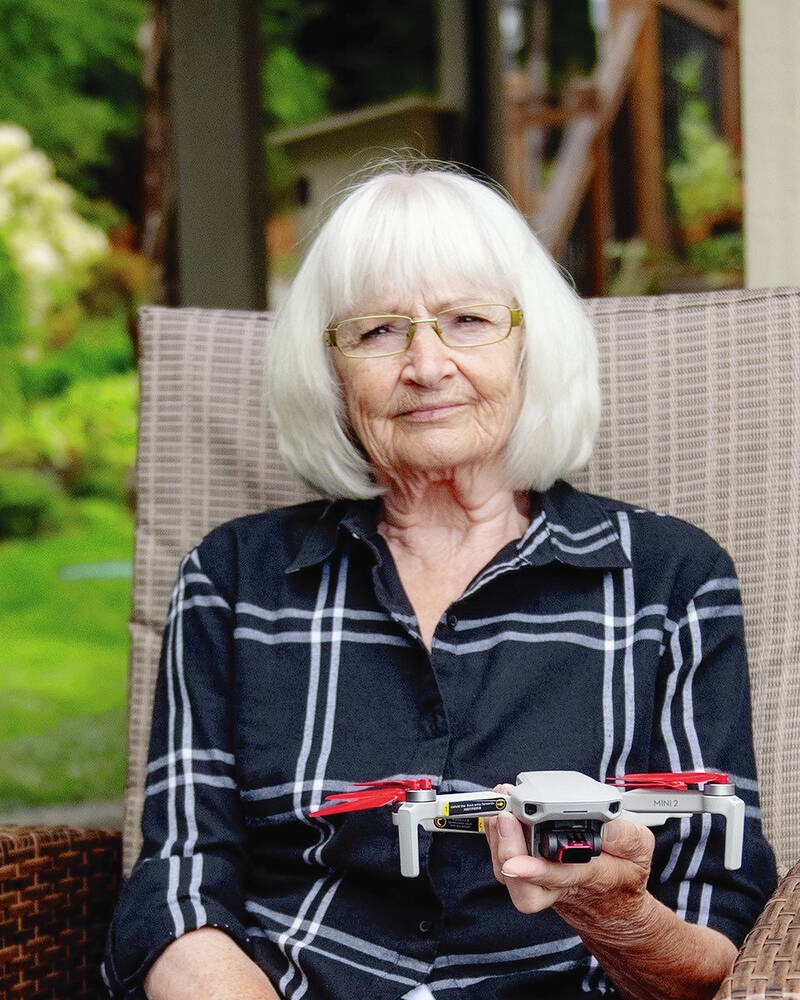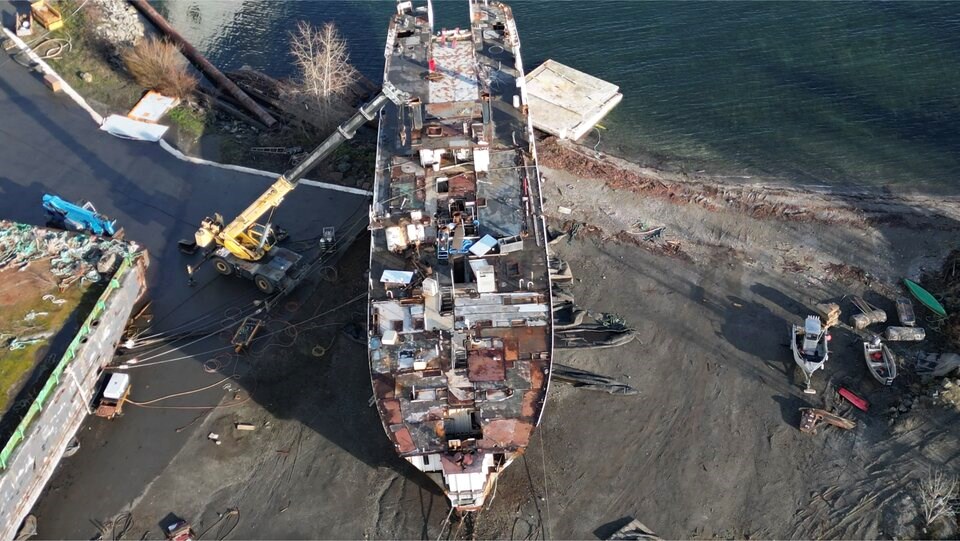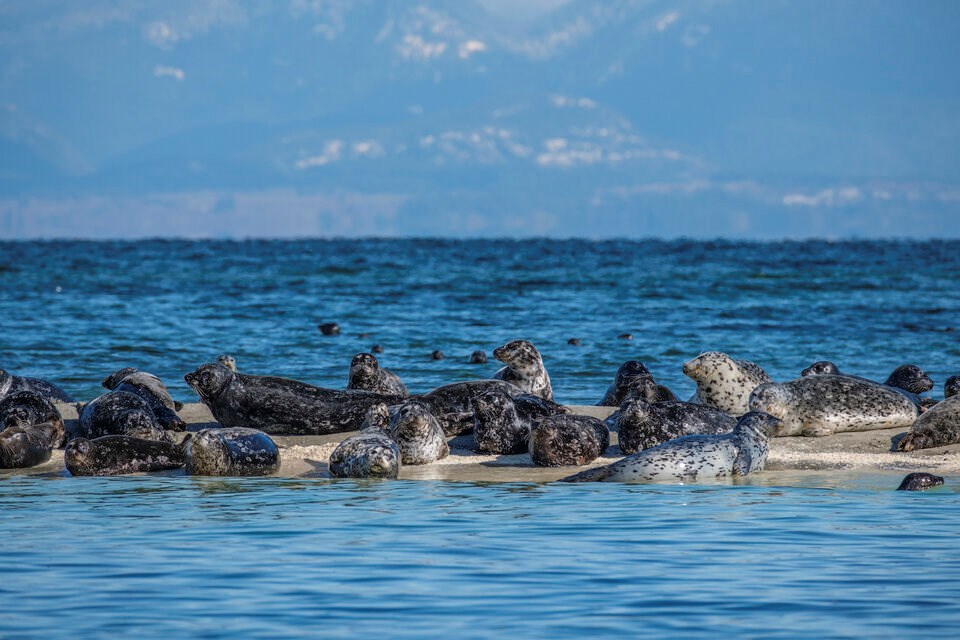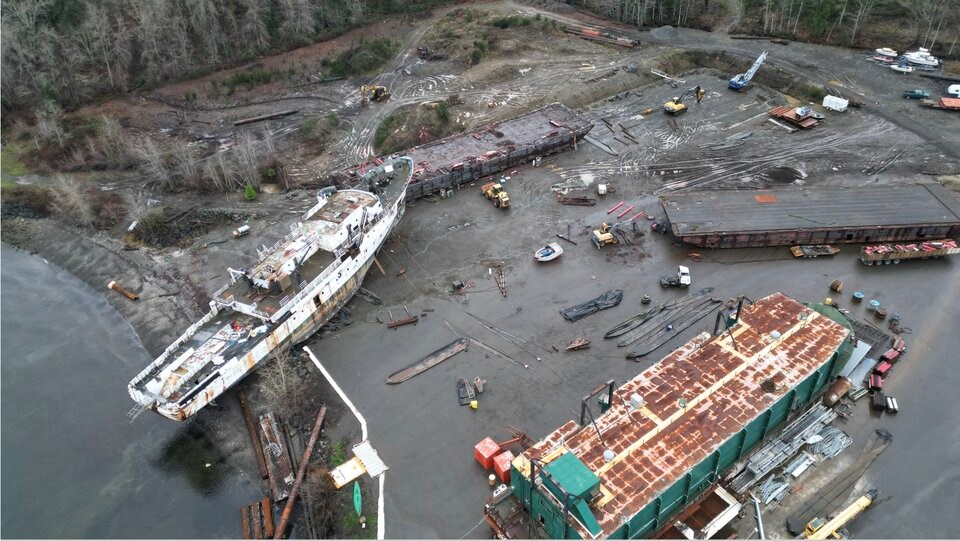A company that dismantles and recycles ships on a stretch of British Columbia coastline has been penalized $46,105 for releasing effluent laced with high concentrations of toxic metals into the ocean.
The “major” administrative penalties to Deep Water Recovery Ltd. come after the company allowed the toxic effluent to flow into the ocean near Vancouver Island’s Union Bay at least seven times between 2023 and 2024, according to a recent decision from Environmental Management Act director Jason Bourgeois.
The toxic waste was found to contain elevated levels of copper, zinc and lead, that at the high end, exceeded provincial water quality guidelines by nearly 24,000 per cent.
At those levels, Bourgeois wrote, the effluent could result in “a very serious threat to the environment.”
Mark Jurisich, the Canada operations manager for Deep Water Recovery, said the company would contest the penalties. He said the area was already polluted due to a long history of coal and copper mining, and that his company's operation had nothing to do with the toxic water samples.
“This whole area is rich in these minerals. If it’s coming out of the ground, you might not agree with it, but there’s nothing I can do about it,” he said. “It’s got nothing to do with what we’re doing.”
Mary Reynolds, a Union Bay woman who has spent the last few years monitoring the industrial ship-breaking operation with a drone, said the latest penalties are the largest sanction Deep Water has faced so far.
“It’s not much, but it’s a start,” she said. “There’s just no precautions. They torch apart the ship on soil. There’s nothing preventing anything from running down into the ocean.”
Multiple warnings
Deep Water Recovery's 111-acre beachfront facility receives ships and barges from across B.C. and overseas. When a vessel arrives, workers cut it into smaller sections with shears and torches.
The leftover materials — which includes wood debris, steel, rusted metal, septic system discharge and other effluents — are then divided up for disposal and recycling, according to provincial inspection reports.
The Union Bay operation has been the target of significant local opposition since they began breaking apart barges in 2020. A year later, as BC Ferries moored the retired Queen of Burnaby at Union Bay in preparation for recycling, the K'ómoks First Nation took a public stand opposing the ship-dismantling facility. And in 2022, the Comox Valley Regional District filed a civil suit against the company on grounds the site was not zoned for ship deconstruction.

Provincial inspectors arrived at the site in April 2022 to examine the nearshore dismantling operations. As the company was in the process of cutting apart a barge, inspectors found the main dismantling area was designed to direct effluent into three collection basins, according to the latest decision.
But when they looked closer, they observed the basins "drained directly to the marine environment" without any treatment system. They later found the company had no authorization to discharge effluent.
Another October visit from inspectors found two of the unlined effluent basins were overflowing onto the beach and into Baynes Sound. Altogether in 2022, Deep Water was warned three times they were in breach of environmental regulations.
Despite objections from local residents and the K'ómoks First Nation, Reynolds said all levels of government have largely ignored Deep Water’s operations.
“They don’t have the equipment, facility or expertise to do the kind of work they want to do here,” said Reynolds. “They need to be shut down.”
Company says contamination would have occurred anyway
In his decision, Bourgeois cites Fisheries and Oceans Canada descriptions of Baynes Sound as an "ecologically and biologically significant area" for Pacific salmon that supports 60 per cent of all herring spawning in the Strait of Georgia.
The area's tidal flats make it an important staging, breeding and overwintering site for local and migratory birds, according to BirdLife International.
Deep Water's ship recycling facility is also about 350 metres away from a commercial shellfish tenure in a region estimated to account for "a significant proportion of shellfish aquaculture production in British Columbia," the decision states.
In submissions, the company claimed many of the observed breaches occurred at a site that has been historically contaminated by industrial coal and logging operations. The company wrote that it should not be penalized for pre-existing environmental conditions caused by other parties.
Jurisich added that there are still piles of coal nearby that impact the quality of water in the area.
“We’re adjacent to coal hills,” he added. “That coal has migrated north all the way up to the edge of our industrial zone.”

In submissions, the ship recycler alleged the Ministry of Environment and Parks failed to act on “widespread, historic contamination in the larger Union Bay region” and that contamination of the environment from its facility “is miniscule relative to the contribution from the adjacent lands.”
But in his decision, Bourgeois found that Deep Water failed to provide any specific evidence to back up its claims.
In November 2023, the ministry rejected the company’s application for a permit to release effluent into the environment. Inspections in the spring and summer of 2024 found Deep Water was once again out of compliance.
Water contamination 160 times provincial limit
A site activity report stated no vessel recycling had occurred since the spring of 2023, but when inspection officers visited in May and June 2024, they found the company was recycling a barge and a vessel.
In June, inspectors observed Deep Water workers pulling the 66-metre former U.S. research ship Miller Freeman from the foreshore to the worksite.
“Liquid discharge from the breakdown and recycling of the vessel is not contained by the gravel surface and discharges directly to ground and the marine environment,” the inspection report stated.
Officers cited in the decision saw “piles of painted wood, metal and other waste” at the site and observed liquid discharge from the site and around the vessel leak into the marine environment.
Testing around the vessel, sump area and a nearby ditch later confirmed copper, zinc, cadmium and lead leaking off the site at levels far beyond provincial water quality limits.
At one sump location, acute copper concentrations were found to have spiked 160 times B.C.’s acute exposure limit for marine life, with zinc climbing more than 13 times the limit.

According to the decision, those limits matter because copper can disrupt growth, feeding and longevity in marine life, and even produce lethal effects. Lead, meanwhile, can stunt growth and respiration in marine algae and can also lead to acute toxicity in marine invertebrates. And when it comes to zinc, oysters are among the most severely affected, with the metal impacting the development of the bivalve’s embryo and shell.
Up to 70 per cent of B.C.’s oyster production occurs on a stretch of Vancouver Island’s east coast from Comox to Deep Bay. When contamination occurs, it can have debilitating effects on the industry and human health — as it did in the final months of 2024 when 64 cases of norovirus-like illness were linked to the consumption of raw oysters from the Baynes Sound region.
Biologist report finds ocean current likely spread contamination south
In August 2024, a biologist tasked to investigate the impact of the discharges on the marine environment found there was “insufficient data” to assess the actual effects of the pollution.
However, the memorandum noted that multiple tests on rainbow trout showed the effluent had a toxicity rating ranging from slight to severe. In addition to toxic metal concentrations, the biologist also pointed to the release of high levels of polychlorinated biphenyls (PCBs) for their ability to damage life over the short and long-term.
“Many of these are toxic to marine organisms at very low concentrations,” the biologist wrote.
The pattern of ocean currents in Baynes Sound moves water and sediment south, and is expected to bring Deep Water Recovery’s effluent toward an “important shellfish habitat” and the mouth of at least one salmon-bearing creek, the memo concluded. Any pollutants present or likely to be present in the effluent are expected to persist in the environment for years to decades, it stated.

In submissions to the ministry, Deep Water claimed the alleged “effluent” from the facility “consists of rainwater and surface runoff water” and that the company has “no active role in creating it.” It called on the ministry to stop characterizing surface runoff as effluent that contravenes the Environmental Management Act.
According to Jurisich, the Ministry of Environment and Parks was under a lot of pressure from local advocates to target the company, and that if it was doing anything wrong, the federal government would "have a big issue with it."
“I think our operation is exceptionally clean,” he said. “We are transparent. We are sincere. If we felt we were doing something wrong, we would respond to it immediately.”
Bourgeois, however, found the discharges flowing from the industrial site into the ocean could be classified as an effluent.
The director reduced the company’s total penalty after finding it had taken “some additional actions to avoid the failure from happening again.”
As for Reynolds, she opposes the way Deep Water operates, but said she’s not against ship recycling on B.C.’s coast if it's carried out on a dry dock disconnected from the marine environment.
“It’s needed. We have to do something. We produce a lot of ships and we can’t be shipping them off to other countries," she said. “But we have to do it properly.”





